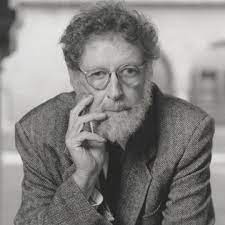Meyer, John W.

Bio: (1935-) American sociologist. John Meyer holds a Ph.D. from Columbia University and is a professor at Stanford University. He is one of the leading representatives of the neo-institutional approach in sociology, which he has applied to the study of many areas: education, organization, globalization, youth, political sociology, and others. At the beginning of his career, Meyer was mostly concerned with the sociology of education and organizations, but he gained his greatest popularity in the mid-1990s when he applied his neo-institutional approach to the study of globalization. This approach to the process of globalization is often called the "world society theory" or the "World Polity Theory".
Meyer views the process of globalization as the emergence and spread of "World Culture". Since the middle of the nineteenth century, a rationalized world institutional and cultural order has been created. This order contains universal models that shape countries, organizations, and individual identities. World culture originates from the European tradition of rational Christianity, the Westphalian system of state sovereignty, and Enlightenment universalism. The universal ideas of state sovereignty, individual rights, and rational progress began to spread in the nineteenth century throughout Europe and further to other continents. These ideas were spread by many private and state organizations and social movements. After the Second World War, this system became ubiquitous, because it was applied by almost all countries. World culture, which has also become ubiquitous, gives legitimacy to individual states because it places them in the broader system of the "world polity". However, world culture and world polity do not lead to an absolutely homogeneous World, because there will always be regional and local differences in the implementation of fundamental values. World culture acts as a system that detects and solves global problems, such as global warming, but also local ones, such as corruption or human rights violations.
Main works
The Impact of the Open-Space School Upon Teacher Influence and Autonomy (1970);
The Expansion of the Autonomy of Youth (1971);
Organization and Instruction in Elementary Schools (1976);
The Structure of Educational Systems: Explorations in the Theory of Loosely-Coupled Organizations (1977);
Environments and Organizations (1978);
National Development and the World System: Educational, Economic, and Political Change, 1950-1970 (1979);
Organizational Environments: Ritual and Rationality (1983);
Institutional Structure: Constituting State, Society, and the Individual (1987);
Institutional Environments and Organizations (1994);
„World Society and the Nation-State“, in American Journal of Sociology (1997);
Science in the Modern World Polity (2003);
Globalization and Organization (2006);
World Society: The Writings of John W. Meyer (2009);
Hyper-Organization: Global Organizational Expansion (2015);
The University and the Global Knowledge Society (2020);
Institutional Theory (2021).

